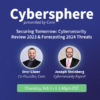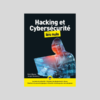Brilliant Advice From Abraham Lincoln About Internet News Reports
Nearly a decade ago, well before most people had first heard the term “fake news,” I wrote a piece for Forbes unlike any other piece I had ever written before.
Since then, I have seen many Internet memes circulate that appear to convey a similar message.
As the result of several recent incidents, however, I have decided to re-share the piece… SO, here you go…
Written for Forbes – April 2013:
Yesterday’s posting by a hacker of a false report that President Obama was injured by explosions in the White House onto an official AP Twitter feed – a tweet that caused equity markets to momentarily plummet – underscores the importance of taking everything we read on the Internet with a grain of salt.
“Trust, but verify” was Ronald Reagan’s position when it came to Russian nuclear disarmament agreements. Such a policy is also wise, if not overly generous, with regard to information obtained via the Internet, as there is never 100% certainty as to who crafted a particular piece of data or whether its sources are accurate. It may seem obvious, but, clearly in the world of cyberspace it is not, but people sometimes make mistakes, and sometimes they intentionally lie.
Furthermore, when one views a web page or Twitter post, what she actually reads is not the original material, but what her computer says the page or tweet is supposed to look like, after the data to form it is transmitted through many routers, servers, and other network devices along the path from the its original source. Malware or other attack technologies along that path can easily modify contents.
When one views online content what they see is the content as it appears after being transmitted through numerous routers and servers, on many of which malware can modify things. Click To TweetPerhaps even scarier than yesterday’s attack on the AP is one in which hackers attack network devices and then configure various forms of proxies to modify some data when it is sent to some recipients – so that different parties see different results when viewing the same page, Twitter feed, or email message. Such an attack can cause pandemonium, and allow for various forms of fraud; imagine, for example, if people in a particular firm or region were provided with, and reacted to, reports of some shocking news (such as yesterday’s lie about President Obama and the subsequent market sell-off), while others were not. Encrypted communications and site authentication cues can help shield against such attacks, but the vast majority of Internet activity presently leverages neither defense.
Furthermore, the issues of accuracy of data are as pertinent as ever. Last week there were numerous erroneous reports from generally respectable and reliable news sources related to the bombings in Boston and the search for the perpetrators. The “need for speed” in today’s age of instant online news has led to compromises when it comes to fact checking.
What does this have to do with Abraham Lincoln?
Everything.
After all, it was Abraham Lincoln himself who proclaimed on June 2, 1861, that “The problem with information that you read on the Internet is that it is not always true.”
“The problem with information that you read on the Internet is that it is not always true.” - Abraham Lincoln (June 2, 1861) Click To Tweet












 CyberSecurity for Dummies is now available at special discounted pricing on Amazon.
Give the gift of cybersecurity to a loved one.
CyberSecurity for Dummies is now available at special discounted pricing on Amazon.
Give the gift of cybersecurity to a loved one.